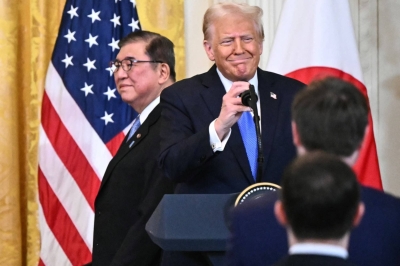Church and State have, down history, done battle for wealth and power.
However, in "Holy Russia" (as that country was known in the 16th and 17th centuries), the two achieved a remarkable equilibrium. The power of the Church was seen as complementing, rather than competing with, the power of the State. This ushered in a period of churchly magnificence -- after all, when the czar himself, or members of his family, were present at services, it gave the ultimate sanction to shows of ecclesiastical opulence.
Visitors were taken aback by the excessive devotion of the Russian court. "What shall we say of these duties, severe enough to turn children's hair gray, so strictly observed by the Emperor, Patriarch, grandees, princess and ladies, standing upright on their legs from morning to evening," wrote Archdeacon Paul of Aleppo, an Arab Orthodox from the patriarchate of Antioch, who stayed in Russia 1654 to 1656.


















With your current subscription plan you can comment on stories. However, before writing your first comment, please create a display name in the Profile section of your subscriber account page.